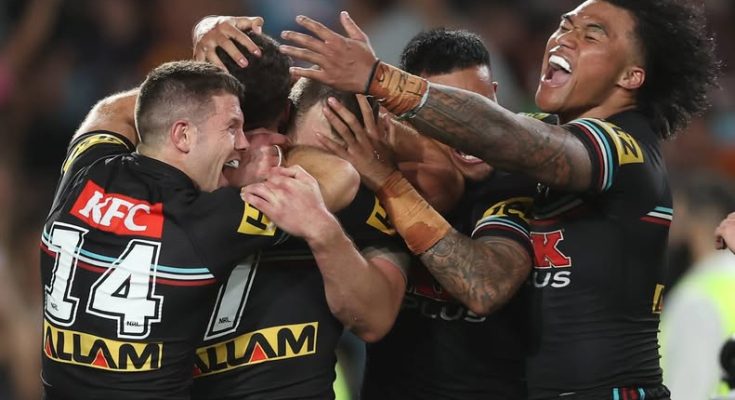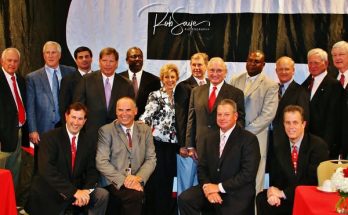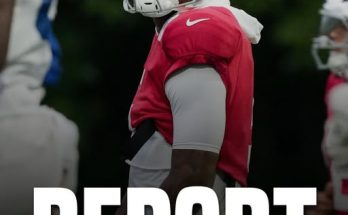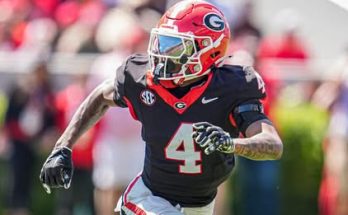The Penrith Panthers have officially established themselves as the NRL’s most formidable and, for many, most despised club. In a league celebrated for its unpredictability and fierce rivalries, few teams in recent memory have managed to polarize fans and opponents quite like the Panthers. Their rise to prominence over the last decade has not been subtle, and their latest performances have solidified a reputation that is equal parts awe-inspiring and infuriating, depending on whose side of the field you are on. For neutral observers, Penrith’s dominance represents the embodiment of elite preparation, strategic brilliance, and an unapologetically ruthless approach to the game. For rival supporters, it is a relentless reminder that there is no room for sentimentality in professional sports, only results.
What has made the Panthers such a lightning rod for attention is not simply their success on the scoreboard but the manner in which they have achieved it. Penrith’s formula is not designed to win fans over with flashy plays or sentimental victories; it is designed to win games, period. Their style is methodical yet merciless, blending physicality, speed, and tactical awareness in ways that have left opponents scrambling for answers. The Panthers understand that in modern rugby league, success is as much about mental dominance as it is about points scored. Every pass, tackle, and strategic play is calculated to impose pressure, dictate the tempo, and wear down the opposition both physically and psychologically. In doing so, Penrith has cultivated a persona that is deliberately intimidating, the kind of aura that turns ordinary matches into battles for survival, with the Panthers standing firmly at the apex.
Central to this rise has been the club’s remarkable consistency in player development and recruitment. The Panthers’ academy system and scouting network are among the most sophisticated in the NRL, enabling them to identify and nurture talent at a level few clubs can match. Players who emerge from the Penrith system are not only technically gifted but also mentally conditioned to embrace the club’s competitive ethos. The result is a pipeline of athletes who understand from the outset that winning is non-negotiable, and that sacrifice, discipline, and aggression are integral to their identity. This continuity has afforded the Panthers a rare advantage: they are not rebuilding from scratch every few seasons but rather evolving and refining a core group of elite performers who share a unified vision. For opponents, this translates into a team whose cohesion is nearly impenetrable, a well-oiled machine that operates with precision and discipline in high-pressure situations.
While some may criticize the Panthers for lacking charm or flair, their approach is undeniably effective. Matches involving Penrith are often battles of attrition, where endurance, resilience, and tactical ingenuity overshadow the spectacle of individual brilliance. The Panthers’ ability to control games is a testament to meticulous preparation and unwavering focus. Coaches and analysts frequently highlight the team’s attention to detail, from defensive formations to attacking structures, all of which are honed to perfection through rigorous training and an uncompromising commitment to standards. Players internalize this approach, executing game plans with precision, making minimal errors, and maintaining composure under pressure. The result is a team that, at its peak, can overwhelm opponents not through flashiness but through relentless consistency, forcing rivals to confront the uncomfortable truth that the Panthers are not simply a team to beat—they are a standard to aspire to.
This strategic ruthlessness is amplified by the leadership core within the squad. Penrith has consistently emphasized the importance of players who can influence matches both on and off the field. Their captains and senior figures exemplify a balance of discipline, resilience, and tactical intelligence, serving as anchors during tense encounters. Such leadership ensures that the team remains focused and unified, particularly when faced with adversity. Penrith’s culture does not tolerate complacency or wavering commitment, and the players internalize this ethos from day one. The mental toughness cultivated within the squad allows them to navigate high-pressure situations, whether it is a tightly contested playoff match or a season-defining clash against a top-tier rival. This psychological edge is one of the key differentiators that separates the Panthers from other contenders; they are not merely participants in the competition—they are relentless competitors who impose their will with precision and authority.
Equally significant is the Panthers’ ability to adapt to evolving challenges while remaining true to their core principles. Rugby league is a dynamic sport, where tactics, player movements, and opposition strategies are constantly shifting. Penrith has demonstrated an uncanny ability to evolve in response to these variables without losing the defining elements of their identity. Their adaptability is reflected in in-game adjustments, rotation strategies, and player versatility. This flexibility allows the Panthers to exploit weaknesses in rival teams while minimizing exposure to risk, a skill set that is particularly vital in the high-stakes environment of finals football. Observers often note that Penrith’s dominance is not the product of raw talent alone but of a sophisticated understanding of the game, coupled with the discipline to execute plans with surgical precision.
The perception of Penrith as the “villain club” is also a reflection of how their success has been framed by fans, media, and rival teams. In a league where underdog narratives and historical allegiances shape emotional engagement, Penrith’s rise disrupts traditional expectations. They are unapologetically competitive, unafraid to challenge established hierarchies, and unwilling to concede glory without a fight. For traditionalists, this approach may seem brash or unsympathetic, but for the team and its supporters, it is a manifestation of a winning culture that rewards hard work, strategy, and ambition. Villainy, in this context, is not about malice—it is about dominance. Penrith has embraced the role of the team that everyone loves to hate, using that reputation to further galvanize their internal culture and sharpen their focus on the ultimate prize.
Moreover, the Panthers’ influence extends beyond matchdays, shaping conversations around rugby league culture, sportsmanship, and competitiveness. Analysts, commentators, and rival coaches frequently reference Penrith’s methods as benchmarks for excellence, even when critiquing their perceived coldness or lack of spectacle. The team’s success compels other clubs to raise their standards, invest in player development, and refine strategic approaches. In this sense, the Panthers are catalysts for evolution within the NRL, forcing competitors to confront uncomfortable questions about preparation, resilience, and tactical acumen. Their dominance is not merely statistical—it is transformative, challenging the very framework of competition and compelling the league to adapt in response to their model.
It is also worth noting that Penrith’s pursuit of victory is closely tied to community and identity. While their on-field persona may project ruthlessness, the club maintains strong connections to its fanbase and local initiatives. The Panthers’ success has cultivated pride and engagement in Western Sydney and beyond, demonstrating that winning, even when accompanied by a controversial image, can unify and inspire. Fans celebrate not just the scoreboard results but the embodiment of a culture that prizes effort, intelligence, and perseverance. This duality—ruthless on the field, engaged in the community—adds depth to the narrative of the Panthers as a club that is multifaceted, ambitious, and deeply invested in both its sporting and social responsibilities.
Yet, despite their formidable reputation, uncertainty remains. Rugby league history is littered with dominant teams that have faltered at critical moments, succumbing to injury, fatigue, or psychological pressure. The Panthers, for all their strengths, are not immune to these challenges. Success in the NRL requires navigating a complex web of variables, from squad depth to fixture congestion, from form fluctuations to unexpected injuries. While Penrith’s formula has proven effective, the question remains whether it can withstand the sustained pressures of a long season, culminating in the intensity of finals football. Opponents will study their patterns, exploit weaknesses, and attempt to dismantle the structure that has brought them so much success. The narrative of the Panthers as villains adds an additional psychological layer, both inspiring their own players and provoking their adversaries.
Ultimately, Penrith’s identity as the NRL’s premier villain club is inseparable from their on-field achievements, strategic sophistication, and cultural cohesion. They have constructed a model of excellence that demands respect, even from those who begrudge their success. Villainy, in the case of the Panthers, is a byproduct of a relentless pursuit of victory, a refusal to compromise principles, and a disciplined, calculated approach to every aspect of the game. It is a narrative that combines dominance with intrigue, skill with psychological mastery, and strategy with unyielding ambition. Whether they can ultimately convert their reputation and capability into a historic championship run remains to be seen, but one truth is indisputable: Penrith has reshaped expectations within the NRL, proving that winning is as much about culture, preparation, and mindset as it is about raw talent. Their story is a blueprint for how modern sports teams can achieve greatness, provoke discussion, and redefine the very meaning of competitiveness in the contemporary era.
In the coming seasons, all eyes will remain fixed on Penrith. Fans, pundits, and rivals alike will continue to watch, analyze, and debate the methods of a club that refuses to play nice, refuses to compromise, and refuses to surrender the mantle of dominance without a fight. In a world where sporting narratives often celebrate heroics and fair play, the Panthers remind us that there is power in relentlessness, strategy, and the unapologetic pursuit of victory. The NRL’s biggest villains have arrived, and they are here to stay.



